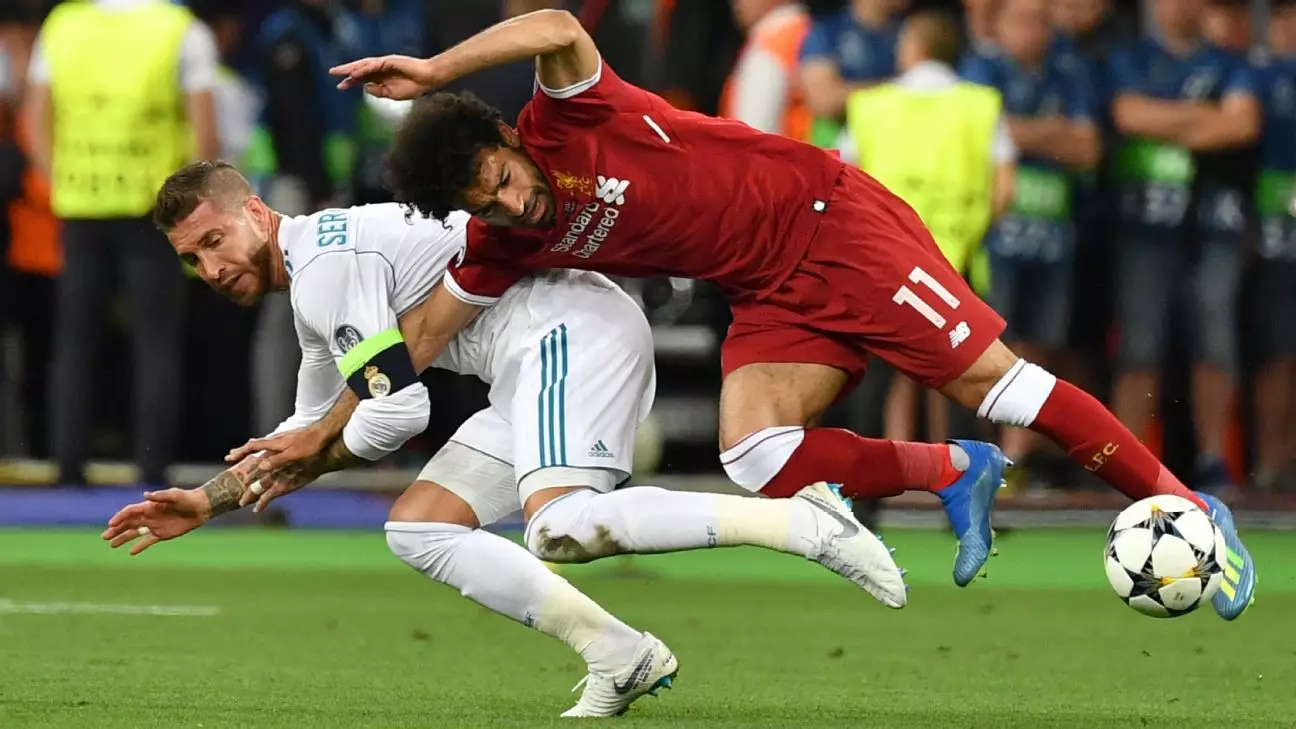In the modern world of professional football, the interplay between talent, ethics, and the sporting spirit often sparks contentious dialogue. A recent exchange between former Liverpool manager Jürgen Klopp and renowned midfielder Toni Kroos accentuates this debate, spotlighting Sergio Ramos, a player whose reputation oscillates between reverence and disdain. The contentious moment arises from the 2018 Champions League final, where Ramos’s physicality led to an injury for Liverpool’s Mohamed Salah. This incident has inevitably fueled discussions about the moral compass within the game.
The 2018 Champions League final, held in Kyiv, remains etched in the memories of football enthusiasts for the drama and heartbreak it showcased. Salah’s forced departure following a challenging tackle from Ramos not only changed the course of the match but also ignited heated discussions about sportsmanship. Klopp, reflecting on the event, openly questioned the character of Ramos, calling attention to the brutality of the challenge. This raises pertinent questions about accountability in sports: to what extent should players be responsible for the repercussions of their actions on fellow competitors?
During the podcast, Kroos defended Ramos, emphasizing his characteristics as a teammate despite Klopp’s unease with the tackle. This divergence of perspectives highlights the complex nature of relationships within competitive sports. While some may see Ramos as a passionate player who embodies winning at all costs, others view such aggression as detrimental to the spirit of the game. Klopp’s assertion that a player’s integrity should remain intact while participating at high stakes points to a deeper philosophical stance that transcends mere athlete performance—advocating for sportsmanship that prioritizes respect and concern for fellow players.
The discussion invites an exploration of what it truly means to be a “good guy” in sports. Ramos may be celebrated for his on-field prowess and contributions to Real Madrid’s success, yet, Klopp’s scathing comments question whether these accolades can overshadow the ethical implications of his tactics. Such behavior invites scrutiny: players like Ramos may win titles, but what precedent does it set for young athletes who idolize them? The concept of heroism in sports is thus called into question—should it be measured solely by titles, or should it also encompass the respect and honor displayed towards opponents?
Ultimately, Klopp’s remarks and Kroos’s defense encapsulate a broader dialogue surrounding ethics in football. Managing a team requires navigating not just the physical capabilities of players but also their moral influences. As football evolves, it becomes increasingly essential to nurture a culture that values fair play alongside competitiveness. The legacy of moments like the Salah injury serves as a reminder of the impending need to balance winning with integrity, ensuring that the heart of the game remains intact amidst the fervor of competition.

